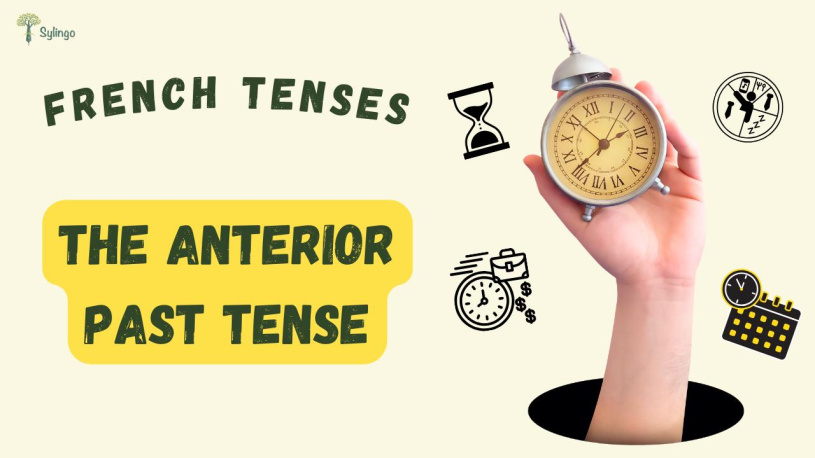The "passé antérieur" (Past Anterior) is a French verb tense that talks about something happening before another action in the past. To create it, you blend the helping verbs "avoir" or "être" with the past participle of the main verb, using the past simple (passé simple). This tense is mainly used in formal and literary writing, often paired with the passé simple.
In simpler terms, the "passé antérieur" is a tool for storytelling, especially in historical or literary contexts. It helps describe an event or action in the past that occurred alongside another action or event, narrated in the simple past (le passé simple).
Think of it as a way to show which event came first when discussing past happenings. In literature and history-related writings, it acts like the past perfect (le plus-que-parfait), telling us about an event that took place in the past before another event. You might not use it every day, but knowing about it is handy, especially if you're into reading a lot in French.
The past anterior (Le passé antérieur) is used after:
1- Les conjonctions temporelles (temporal conjunctions):
| (as soon as |
aussitôt que |
| as soon as | dès que |
| when |
lorsque |
| after | après que |
Example:
Il eut fini son travail quand je suis arrivé.
He had finished his work when I arrived.
2- Les conjonctions de subordination (subordinating conjunctions):
| because |
Parce que |
| before | Avant que |
| although | Bien que |
| when | Quand |
Example:
Elle eut mangé avant que je sois arrivé.
She had eaten before I arrived.
3- Les conjonctions causales (causal conjunctions):
| since |
Puisque |
| since, as | Comme |
Example:
Il eut réussi puisque c'était un travail acharné.
He had succeeded since it was hard work.
4- Les conjonctions hypothétiques (hypothetical conjunctions):
| if |
Si |
Example:
S'il eut terminé à temps, il aurait pu partir.
If he had finished on time, he could have left.
5- Les conjonctions de comparaison (comparative conjunctions):
| more than |
Plus que |
| less than | Moins que |
| as much as |
Aussi que |
Example:
Il eut étudié plus que nécessaire.
He had studied more than necessary.
The past anterior comes after these words to express an event or action that occurred in the past before another event happened.
How to form the "passé antérieur":
The "passé antérieur" is formed by using the auxiliary verbs (être) or (avoir) in the past simple (le passé simple) + the past participle of the main verb (le participe passé).
|
Participe passé + |
Auxiliaire avoir |
ou |
Auxiliaire être |
+ |
Pronom |
|
eus |
fus |
je |
|||
|
eus |
fus |
tu |
|||
|
eut |
fut |
il / elle |
|||
|
eûmes |
fûmes |
nous |
|||
|
eûtes |
fûtes |
vous |
|||
|
eurent |
furent |
ils / elles |
Examples with the auxiliary verb (être):
| Quand nous fûmes partis, il arriva. | When we left, he arrived. |
| Dès qu'elle fut arrivée, le téléphone sonna. | As soon as she arrived, the phone rang. |
Examples with the auxiliary verb (avoir):
| Quand il eut fini son devoir, il dormit. | When he had finished his homework, he slept. |
| Lorsqu'il eut reçu son premier salaire, il acheta des cadeaux pour sa famille. | When he had received his first salary, he bought gifts for his family. |
And with this, we have concluded the "passé antérieur," understanding how to formulate it, when to use it, and how to conjugate it. We will continue with other tenses in the upcoming articles. If you have any questions or inquiries, feel free to write them in the comments, and I will be happy to respond.





